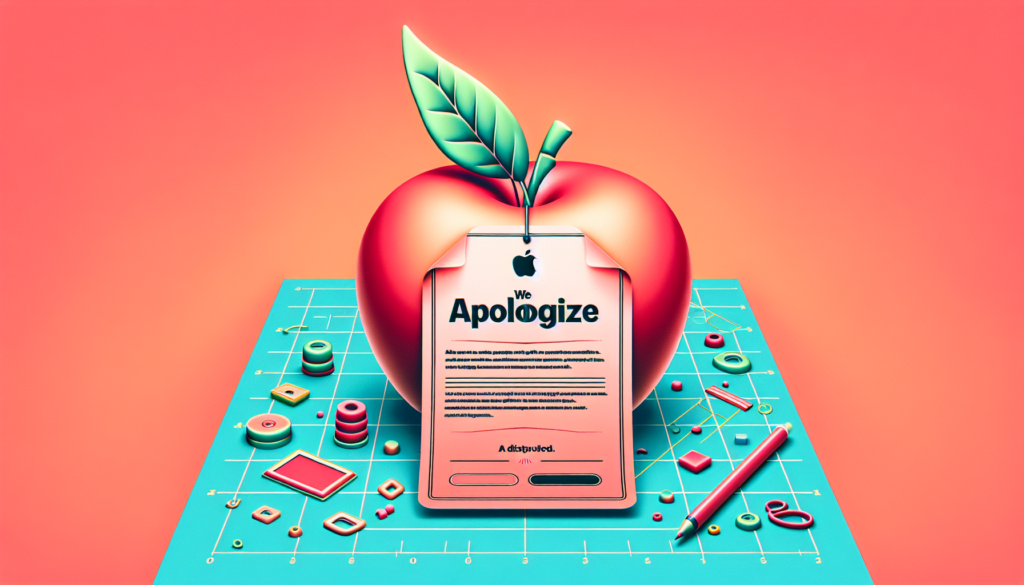
 ## Apple Faces Criticism Over Stereotypical Representation in New Ad Campaign
## Apple Faces Criticism Over Stereotypical Representation in New Ad Campaign
Apple has recently encountered significant criticism due to its latest short film in “The Underdogs: OOO (Out of Office)” series, which is set in Thailand. The tech company decided to withdraw the ad following a flurry of complaints regarding stereotypical depictions of Thailand and its inhabitants. This incident has ignited a wider dialogue about cultural awareness in advertising.
The Situation Develops
According to the Bangkok Post, Apple has apologized to the Thai populace concerning the fifth installment of its “Underdogs” series. The advertisement showcases a group of fatigued office professionals exploring the world with Apple’s various devices. However, numerous viewers took issue with the film’s use of a sepia filter, which depicted Thailand as backward. Furthermore, the costume choices and settings in the airport scene were criticized for relying on outdated portrayals of the country’s citizens.
Public and Governmental Responses
Sattra Sripan, a spokesperson for the Thai House of Representatives’ tourism committee, has called for a boycott of the advertisement. “Thai people are extremely displeased with the advertisement,” Sripan stated. “I urge Thai folks to cease using Apple products and switch to alternative brands.”
In response, Apple swiftly removed the ad from YouTube and issued an apology. Lawmakers have also extended an invitation to Apple representatives to engage in discussions regarding the portrayal of Thailand in their ads. “Our goal was to honor the country’s optimism and culture, and we regret not entirely reflecting the vivacity of Thailand in the present,” the statement noted.
A History of Errors
This is not Apple’s first encounter with criticism regarding its advertising strategies. Earlier in the year, Apple retracted another ad that “failed to resonate” concerning its new slim iPad Pro. The commercial displayed a massive pneumatic press crushing various objects symbolizing creative efforts, only to unveil an undamaged iPad touted as “the most powerful iPad ever and also the thinnest.” Many artists and creators felt offended by the ad’s implications that generative AI might supplant human artistic expression. Although Apple pledged not to broadcast the ad on television, it continues to be available on its YouTube channel with the comments section turned off.
The Significance of Cultural Awareness in Advertising
The outcry regarding Apple’s recent advertisement emphasizes the necessity of cultural awareness in marketing. In an increasingly interconnected world, brands must remain cognizant of how their content is interpreted by diverse communities. Missteps in this area can not only tarnish a brand’s reputation but also alienate potential consumers.
Ways Brands Can Enhance Their Approach
- Perform In-Depth Research: Before initiating a campaign, brands should execute comprehensive research to grasp the cultural subtleties of their target demographic.
- Collaborate with Local Advisors: Partnering with local specialists can provide indispensable insights and help steer clear of cultural pitfalls.
- Conduct Localized Testing: Testing campaigns in the target audience can assist in identifying potential problems prior to a full launch.
- Be Receptive to Critique: Brands should be willing to accept feedback and make adjustments if their content is deemed offensive or unsuitable.
Conclusion
Apple’s recent advertisement controversy serves as a crucial reminder of the significance of cultural sensitivity in advertising. While the tech giant has expressed regret and taken steps to rectify the situation, this incident highlights the need for brands to be increasingly aware of how their content is perceived on a global scale.
Q&A Session
Q1: Why did Apple withdraw its latest ad in “The Underdogs: OOO” series?
A1: Apple pulled the ad in response to complaints about stereotypical portrayals of Thailand and its inhabitants, including the use of a sepia filter and outdated portrayals in the airport setting.
Q2: What was the public response to the ad in Thailand?
A2: The public response was largely negative, with many viewers expressing criticism. Sattra Sripan, a spokesman for the Thai House of Representatives’ tourism committee, even called for a boycott of Apple products.
Q3: How did Apple react to the backlash?
A3: Apple issued an apology and removed the ad from YouTube. They also expressed their intent to celebrate Thailand’s culture and optimism while acknowledging that they did not fully represent the country’s vibrancy.
Q4: Has Apple dealt with similar controversies before?
A4: Yes, earlier this year, Apple faced criticism for an ad promoting the new slim iPad Pro. The ad suggested that generative AI would overshadow human creativity, which offended many artists and creators.
Q5: What measures can brands adopt to prevent cultural insensitivity in their advertisements?
A5: Brands can undertake thorough research, engage local experts, pilot test their campaigns regionally, and remain open to feedback to avert cultural insensitivity.
Q6: What was the main message intended by the controversial iPad Pro ad?
A6: The intended message was to emphasize the iPad Pro’s power and thinness. However, the execution, involving a pneumatic press crushing various creative items, was interpreted as suggesting that technology might replace human creativity.
For further insights on cultural sensitivity in advertising and additional technology-related news, visit Lonelybrand.